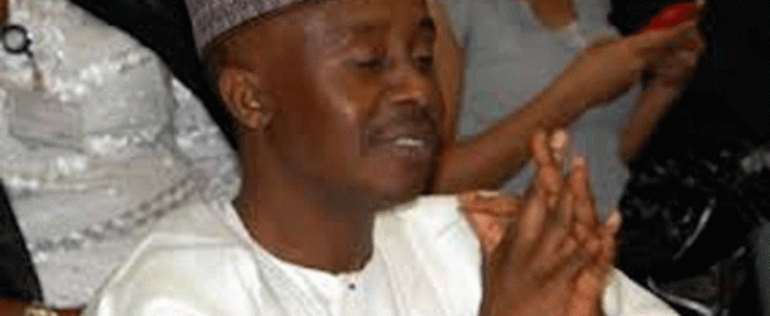Court grants Lawan, Emenalo N20m bail

An Abuja High Court on Friday granted bail to a member of the House of Representatives, Farouk Lawan, and Mr. Boniface Emenalo.
Both accused persons were granted bail in the sum of N10m each with two sureties each in like sum.
The two men were remanded in prison custody after the Independent Corrupt Practices and Other Related Offences Commission arraigned them on seven counts of criminal offence on February 1, 2013.
They were accused of violating the ICPC Act, 2000, by demanding a bribe of $3,000,000, and receiving the sum of $620,000 as gratification from a businessman, Mr. Femi Otedola, in order to influence the report of the House Ad Hoc Committee on Monitoring of Fuel Subsidy Regime.
Lawan and Emenalo, who allegedly committed the offence while serving as chairman and secretary of the ad hoc committee, respectively, had pleaded not guilty to the charges when they were arraigned.
As part of the bail conditions, the accused will deposit their passports with the registrar of the court.
The presiding judge, Justice Mudashiru Oniyangi, prohibited them from travelling outside the country without seeking and obtaining the permission of the court.
But the court did not prescribe any particular category of persons as those that must serve as sureties for the accused, a development that allowed anybody who could provide the bail sum to stand as surety.
After Lawan and Emenalo were remanded in prison custody on February 1, their lawyers, Mr. Rickey Tarfa, SAN, and Chief Mike Ozekhome, SAN, had moved an application for bail, asking the court to release them on liberal terms.
Tarfa had informed the court that both men were prominent members of the National Assembly, who had travelled out of the country on several occasions since the police commenced investigations into their case but still opted to report for trial, instead of absconding.
He argued that they had been on administrative bail granted them by the police before they were arraigned, adding that they were ready and willing to stand trial.
The defence counsel asked the court to grant them bail on self-recognition.
But the prosecution counsel, Chief Adegboyega Awomolo, SAN, urged the court to refuse the bail application, reasoning that the accused persons were likely to commit the same offence if they were released on bail.
Ruling on the bail application, Oniyangi stressed that the decision to grant bail, or not, was at the discretion of the court, adding that the offence for which the accused were being tried carried a sentence of at least three years imprisonment.
He held that, in exercising the discretion, the court would consider three vital issues - whether the accused persons are likely to interfere with investigation, if they will appear for trial and whether they are likely to commit the same offence again.
The judge noted that while the accused filed an affidavit of 26 paragraphs to support the bail application, the prosecution did not file any counter-affidavit in response.
'The consequence of such situation is that any fact deposed to but not controverted must be taken as a fact,' Oniyangi said.
He noted that the accused persons had in their affidavit averred that they would not interfere with investigations, would appear for trial and would not commit any offence.
Oniyangi said, 'To all the averments, the prosecution has no response. The exercise of the court's discretion is based on facts - in the absence of any counter-affidavit to the applicant's averments, the court is left with no option other than to act on them as facts
